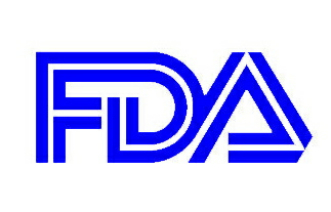The FDA has finalized the Foreign Supplier Verification Programs for food importers, in accordance with the Food Safety Modernization Act of 2011. This rule requires that food importers perform “certain risk-based activities to verify that food imported into the United States has been produce din a manner that meets applicable U.S. safety standards.”
 FDA head Michael Taylor said in a statement, “under the new rules, importers will have the obligation to verify they are meeting U.S. standards. This is a fundamental paradigm shift from the FDA detecting and responding to problems with imported foods to industry being responsible for preventing them.”
FDA head Michael Taylor said in a statement, “under the new rules, importers will have the obligation to verify they are meeting U.S. standards. This is a fundamental paradigm shift from the FDA detecting and responding to problems with imported foods to industry being responsible for preventing them.”
Imported food makes up almost 20% of the food Americans eat. We import 52% of fresh fruits and 22% of the fresh vegetables in our diet. FDA only inspecst up to 2% of imported food at the borders and ports.
Food importers will be required to develop, maintain, and follow a Foreign Supplier Verification Program (FSVP) for each food brought into the country and the foreign supplier of that food. The risk evaluation must be reevaluated at least every three years, or when a potential hazard or question about the supplier’s performance is raised.
The FSVP program verifies that “foreign suppliers are producing food in a manner that provides the same level of public health protection as the preventive controls or produce safety regulations, as appropriate, and to ensure that the supplier’s food is not adulterated and is not misbranded with respect to allergen labeling.”
Importers can hire third party auditors to check the safety of food in facilities overseas. But some consumer advocates think this is not enough to protect the U.S. food supply, since third party auditors have been problematic in the past.
In fact, a report released in 2012 by Congress found that third party auditors don’t do their jobs according to FDA guidelines. That report was conducted after the deadly Listeria monocytogenes outbreak linked to Jensen Farms cantaloupe in 2011. That company’s third party auditor, Primus Labs, is being sued for their part in the outbreak.
Primus Labs contracted the work to Bio Food Safety Inc., a company that advised Jensen Farms on their food safety processes. Bio Food Safety not only conducted an audit but gave Jensen farms a 95$ grade, even though major deficiencies were found. Then Bio Food Safety advised Jensen Farms on how to make changes to their system, which is an inherent conflict of interest, according to the FDA.
That report stated “weaknesses in third party auditors represent a significant gap in the food safety system because the auditors are often the only entities to inspect a farm or facility. We believe reforms in third party audits are essential.”
Imported foods have been linked to many food poisoning outbreaks in the past few years. The Cyclospora outbreak linked to imported cilantro sickened almost 550 people this summer. The E. coli outbreak at Jimmy John’s in Denver was linked to imported cucumbers. The Salmonella outbreak linked to imported cucumbers distributed by Andrew & Williamson this summer and fall has sickened almost 800 people. We will see over the next few years if this new rule makes a difference.




